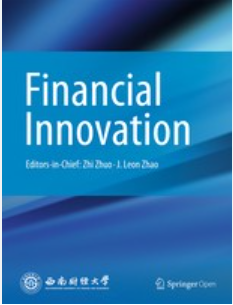如何治理绿色金融产品中的 "洗绿 "行为:三方进化博弈法
IF 7.2
1区 经济学
Q1 BUSINESS, FINANCE
引用次数: 0
摘要
企业在绿色金融产品(GFP)中的 "洗绿 "行为(GWB)严重阻碍了环境保护目标的实现。然而,对绿色金融产品中的 "洗绿 "行为进行有效监管的方法尚不明确。本研究构建了一个三方演化博弈模型,分析了监管机构、企业和投资者之间绿色金融产品担保的形成和治理机制。随后,讨论了稳定均衡策略和影响系统均衡的关键因素。我们得出了几个有趣的结论。首先,我们证明了三个博弈主体之间存在相互依赖机制,他们相互影响。监管部门选择主动监管和投资者采用反馈的概率越大,企业越愿意开展绿色项目。其次,根据全球环境基金的发展阶段,提出了三种相应的全球环境基金治理模式。其中,合作模式对激励企业实施绿色项目最为有效。第三,基于敏感性模拟,三方利益相关者的初始意愿、投资者反馈成本、投资者补偿、对 "洗绿 "企业的惩罚以及企业的声誉利益是影响演化结果的关键因素。最后,为监管部门提供了有针对性的对策,以防止企业进行 "洗绿"。本文章由计算机程序翻译,如有差异,请以英文原文为准。
How to govern greenwashing behaviors in green finance products: a tripartite evolutionary game approach
Greenwashing behaviors (GWBs) in green finance products (GFPs) by enterprises seriously hinder the realization of environmental protection goals. However, methods for effectively regulating GWBs in GFPs are unclear. This study constructed a tripartite evolutionary game model to analyze the formation and governance mechanisms of GWBs in GFPs among regulatory authorities, enterprises, and investors. Subsequently, the stability equilibrium strategy and key factors influencing the system equilibrium were discussed. Several interesting conclusions were drawn. First, we demonstrated that an interdependence mechanism exists among three game agents who mutually influence each other. The larger the probability of regulatory authorities choosing active supervision and investors adopting feedback, the more enterprises are willing to carry out green projects. Second, three corresponding governance modes for GWBs were put forward following the developmental stages of GFPs. Among these, the collaboration mode is the most effective in incentivizing enterprises to implement green projects. Third, based on sensitivity simulations, the initial willingness of the tripartite stakeholders, investor feedback cost, investor compensation, the penalty for greenwashing enterprises, and the reputational benefit of enterprises are critical factors that influence evolutionary results. Finally, targeted countermeasures were provided for regulatory authorities to prevent enterprises from engaging in GWBs.
求助全文
通过发布文献求助,成功后即可免费获取论文全文。
去求助
来源期刊

Financial Innovation
Economics, Econometrics and Finance-Finance
CiteScore
11.40
自引率
11.90%
发文量
95
审稿时长
5 weeks
期刊介绍:
Financial Innovation (FIN), a Springer OA journal sponsored by Southwestern University of Finance and Economics, serves as a global academic platform for sharing research findings in all aspects of financial innovation during the electronic business era. It facilitates interactions among researchers, policymakers, and practitioners, focusing on new financial instruments, technologies, markets, and institutions. Emphasizing emerging financial products enabled by disruptive technologies, FIN publishes high-quality academic and practical papers. The journal is peer-reviewed, indexed in SSCI, Scopus, Google Scholar, CNKI, CQVIP, and more.
 求助内容:
求助内容: 应助结果提醒方式:
应助结果提醒方式:


